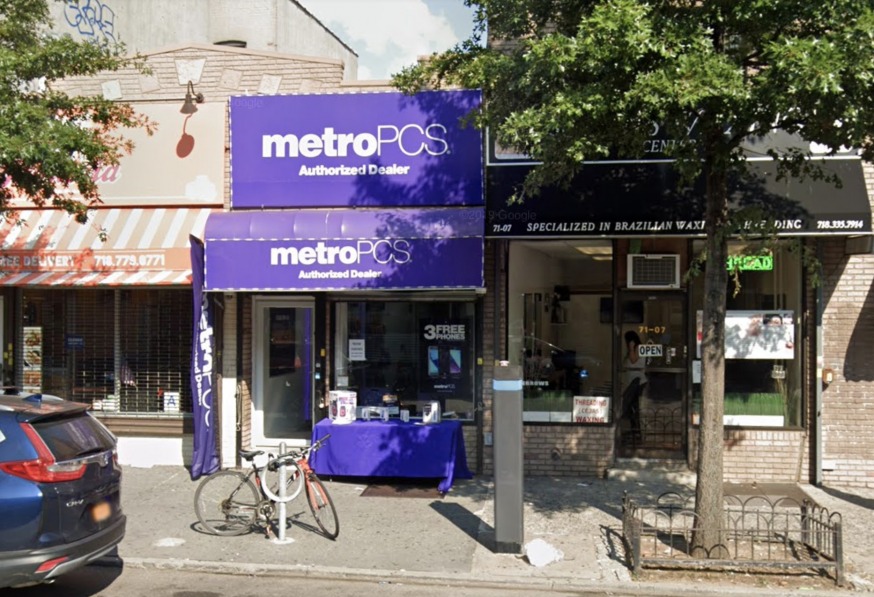
Metro PCS in Maspeth (Google Maps)
Dec. 24, 2020 By Allie Griffin
The number of chain stores in Queens dropped by more than 10 percent over the past year, according to a new report.
In all, 198 chain stores shut their doors in the borough — an 11 percent drop over the past year, according to the Center for an Urban Future’s 13th annual State of the Chains report.
Citywide, more than 1,000 chain stores — nearly one out of every seven — closed in 2020. The report defines a chain store as part of a national or regional chain that has at least two locations in New York City and at least one location outside city limits.
Queens saw the second biggest drop of the five boroughs, behind Manhattan. Twenty retailers experienced a net decline of at least three stores in Queens during 2020, according to the report.
Metro PCS had a net decline of 41 stores in the borough and shuttered more locations in 2020 than any other chain. The company, the city’s second-largest chain retailer, shuttered 134 stores across the city, largely due to its consolidation with parent company T-Mobile.
In Queens, Sprint closed 23 stores after the company merged with T-Mobile. GNS and Modell’s closed 13 and 10 borough stores respectively after each retailer filed for bankruptcy this year.
Duane Reade had a net decline of 10 stores, CVS had a net decline of nine and both Subway and Rite Aid had a net decline of eight stores in Queens, according to the report.
There were a number of zip codes in Queens where more than 20 percent of the chain stores closed in the past year, the report shows.
The number of chains stores in the zip code 11430, which covers JFK Airport, dropped by 28 percent — from 40 stores to 29 — the greatest decrease in Queens.
In the Astoria zip code of 11102, the number of chain stores dropped by 27 percent from 15 stores to 11. Meanwhile, in Springfield Gardens (11413), the number of chain stores dropped by 26 percent from 31 stores to 23 stores.
Citywide, the number of chain stores declined by 13 percent from 2019 to 2020. Manhattan accounted for nearly half of the chain store closures this past year.
The report cites the COVID-19 pandemic and restrictions on nonessential businesses as a factor in many of the store closures.
Even the city’s largest chain, Dunkin’, has 18 fewer stores — including four less in Queens — than a year ago. It was the first time the chain experienced a year-over-year decline in stores in the city since the Center for an Urban Future began tracking the trends 13 years ago.
